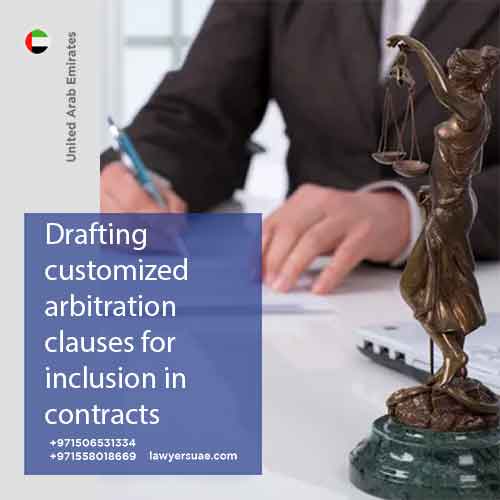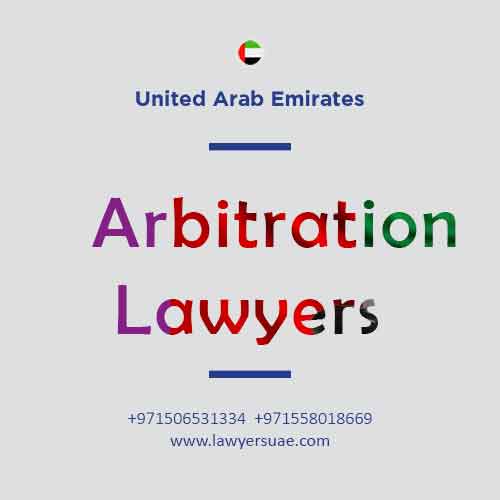Dubai has emerged as a leading global hub for international trade and commerce over the past few decades. The emirate’s business-friendly regulations, strategic geographic location, and world-class infrastructure have attracted companies and investors from around the world across diverse sectors.
However, the complexity of high-value cross-border transactions and diversity of parties involved also lead to a range of complex disputes arising in domains like construction, maritime operations, energy projects, financial services, and major procurement deals.
- When such complex commercial disputes inevitably emerge, hiring experienced arbitration lawyers in Dubai becomes key to protecting your business interests and resolving issues through legally binding arbitration proceedings.
Business Arbitration in Dubai
- Arbitration has become the preferred means for resolving civil and commercial disputes in Dubai and across the UAE without undergoing lengthy and expensive court litigation. Clients may first inquire “what is a civil case?” to understand differences from arbitration. Parties voluntarily agree to appoint neutral arbitrators who adjudicate the dispute in private proceedings and deliver a binding ruling called an “arbitral award.”
- The arbitration process is governed by the UAE’s forward-thinking Arbitration Law enacted in 2018 based on the UNCITRAL Model Law. It enshrines key pillars like party autonomy, strict confidentiality, and limited grounds for appeal/annulment to facilitate fair and efficient dispute resolution.
- Leading arbitration forums include the Dubai International Arbitration Centre (DIAC), Abu Dhabi Commercial Conciliation & Arbitration Centre (ADCCAC), and the DIFC-LCIA Arbitration Centre set up in the Dubai International Financial Centre free zone. Most disputes typically concern breach of contract, although corporate shareholders and construction partners also frequently enter arbitration for issues around ownership rights, project delays etc.
- Compared to traditional courtroom litigation, commercial arbitration delivers faster resolution, lower costs on average, greater confidentiality through private proceedings, and more flexibility in everything from language and governing law to procedures followed and remedies available.
“In the Dubai arbitration arena, choosing the right lawyer isn’t just about expertise, it’s about finding a strategic partner who understands your commercial goals and navigates the nuances of the system.” – Hamed Ali, Senior Partner, Dubai International Arbitration Centre
Key Responsibilities of Arbitration Lawyers in Dubai
Experienced arbitration lawyers in Dubai like Dr. Khamis offer a wide range of vital services:
- Advising on suitable dispute resolution approaches; negotiation, mediation, or filing for arbitration
- Providing counsel around optimal arbitration forum (DIFC, DIAC, foreign institution etc.) When advising on forums, discussions often touch on related aspects like what is corporate law and how it may be applied.
- Drafting customized arbitration clauses to prevent contract disputes by settling terms in advance.
- Drafting statements of claim outlining contractual breaches and compensation sought
- Selecting appropriate arbitrator(s) based on sector expertise, language, availability etc.
- General case preparation – gathering evidence, documentation, witness statements etc.
- Representing clients through arbitration hearings – cross examining witnesses, arguing validity of claims etc.
- Advising clients on the outcome and implications of the final arbitral award
Post award, arbitration lawyers also play a key role in the recognition, enforcement and appealing the decisions as needed to protect the client’s interests.
“An arbitration lawyer in Dubai is more than just a legal counselor; they are your confidante, negotiator, and advocate, protecting your interests in a high-stakes environment.” – Mariam Saeed, Head of Arbitration, Al Tamimi & Company
Key Practice Areas of Arbitration Firms in Dubai
The top-tier international law firms and specialist local advocates have handled hundreds of institutional and ad hoc arbitrations across Dubai and wider Middle East region over decades for regional groups, multinational corporations and SMEs alike.
They leverage in-depth expertise in UAE arbitration law, procedures of DIAC, DIFC-LCIA and other major forums complemented by their extensive experience handling complex cases across key industries:
- Construction arbitration – Complex building, engineering, procurement and infrastructure development projects
- Energy arbitration – Oil, gas, utilities and renewables sector disputes
- Maritime arbitration – Shipping, ports, shipbuilding and offshore sectors
- Insurance arbitration – Coverage, liability and indemnity-related disputes
- Financial arbitration – Banking, investment and other financial services disputes
- Corporate arbitration – Partnership, shareholder and joint venture disputes. If you find yourself asking “what type of lawyer do I need for property disputes?”, firms with corporate arbitration capabilities can advise you effectively.
- Real Estate arbitration – Sale, lease and development agreements
- Plus specialized experience assisting family conglomerates and high net worth individuals resolve private disputes through arbitration
Choosing the Right Dubai Arbitration Law Firm
Finding a suitable law firm or advocate to protect your best interests requires careful evaluation of their specific dispute resolution experience, resources, leadership bench strength and working style/culture:
Extensive Arbitration Experience
- Specifically evaluate their expertise in DIAC, DIFC-LCIA and other leading arbitration institutions – rules, procedures and best practices
- Review their experience handling arbitration specifically in your focus sectors like construction, energy, insurance etc. Identify relevant case studies
- Examine the firm’s success rate; arbitration awards won, damages awarded etc. deriving key insights
- Ensure they have strong experience with post-arbitral award enforcement procedures nationally and overseas
Deep Bench Strength
- Assess expertise breadth across partners and depth in senior lawyers leading complex arbitrations
- Review the experience levels and specializations of wider arbitration team supporting them
- Meet the partners and lawyers personally to evaluate responsiveness and working dynamics
Local Knowledge
- Prioritize firms possessing decades of experience navigating UAE’s legal system, business landscape and cultural environment
- Such deep-rooted presence and connections strongly aid resolving disputes
- International expertise must be complemented by senior Emirati leaders intimately familiar with localization nuances
Appropriate Fee Structure
- Discuss whether they bill hourly rates or charge flat fee packages for certain services
- Get indicative costs estimates for your potential case based on specific complexity factors
- Ensure your arbitration budget aligns with their fee model and expected cost range
Working Style and Culture
- Gauge overall working style and personal chemistry – do they ask insightful questions? Are communications clear and proactive?
- Prioritize responsive firms that align with your preferred client collaboration model
- Evaluate their commitment to leveraging technology and implementing innovations
“Communication is key in Dubai arbitration. Your lawyer should be able to bridge cultural gaps, effectively present your case to a diverse tribunal, and keep you informed throughout the process.” – Sarah Jones, Partner, Clyde & Co.
Why LegalTech is Crucial for Efficient Arbitration
In recent years, leading Dubai law firms and arbitration specialists have proactively adopted legal technology solutions to improve case preparation, strengthen advocacy, streamline research and enhance client collaboration for better dispute resolution outcomes.
- AI-based legal tech is enabling faster drafting of statements of claims by analyzing thousands of past award-winning cases filed at DIAC, DIFC and other forums to identify best practices.
- Automated contract review tools quickly analyze key clauses across construction contracts, JVs, shareholder agreements etc. to assess arbitration risks.
- Digital evidence platforms centralize compilation of emails, invoices, legal notices etc., aiding version control and summary visualization at hearings
- Encrypted online data rooms facilitate securely sharing of large case files with remote experts and streamline tribunal coordination
- Virtual hearing solutions have enabled arbitration proceedings to continue smoothly amidst pandemic constraints through video conferencing, screen sharing etc.
Additionally, NLP analysis of past arbitration awards provides actionable insights around optimal approaches, counter-strategies and likely decisions for enhancing case preparation.
“The Dubai arbitration scene is constantly evolving. Choose a lawyer who embraces innovation, stays ahead of the curve, and implements the latest best practices to maximize your chances of success.” – Sheikha Al Qasimi, CEO, The Law House
Conclusion: Why Specialist Arbitration Lawyers are Key
The decision to pursue arbitration for resolving complex commercial disputes in Dubai has critical financial and reputational implications for both local family conglomerates and multinational corporations.
Appointing experienced arbitration lawyers intimately familiar with latest UAE regulations, arbitration best practices and tech innovations is crucial for furthering your business interests.
After carefully weighing factors around expertise, responsiveness and collaboration philosophy explored above, partnering the right legal team promises efficient resolution protecting your most valued commercial relationships across the UAE and beyond.
Call us now for an urgent appointment at +971506531334 +971558018669





